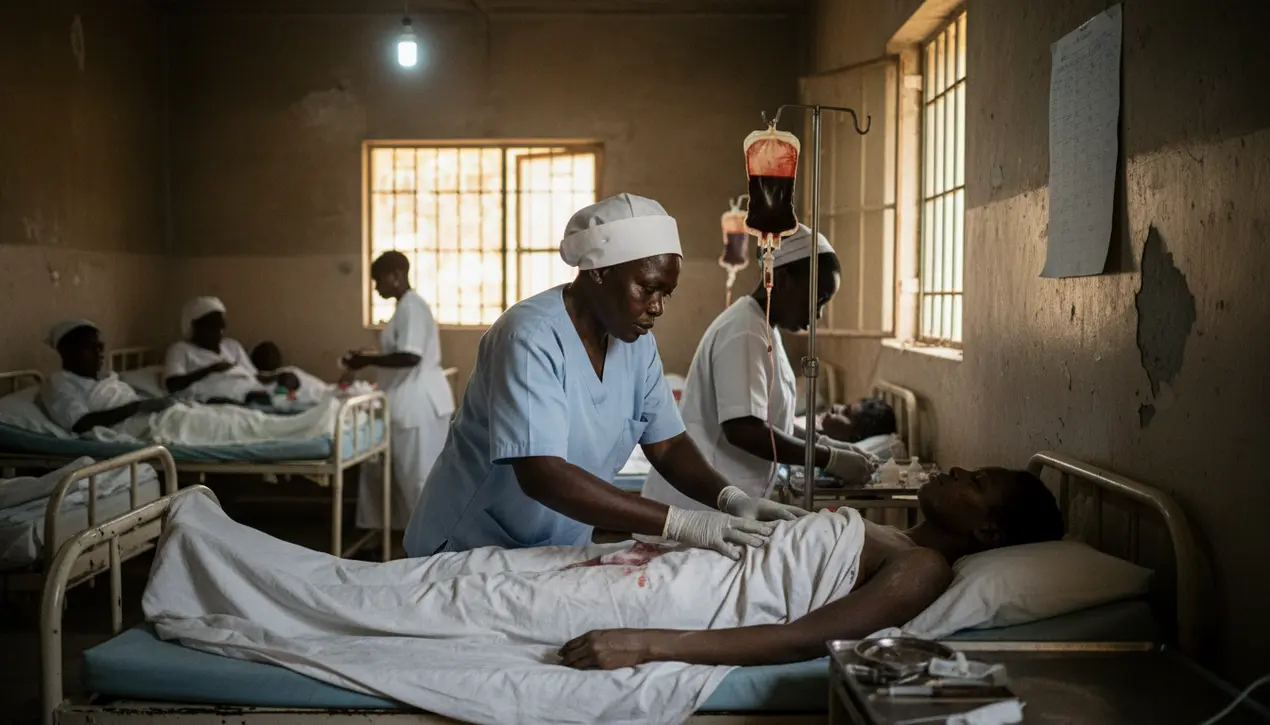
Politicshuman rightsHumanitarian Aid
How US Aid Cuts Make Childbirth More Dangerous
RA
Rachel Adams
3 hours ago7 min read2 comments
The woman arrived at the hospital in Gambia with the colour drained from her skin, her organs teetering on the brink of failure. She had given birth on a warm September day, but a retained placenta—a complication affecting up to one in every 33 births—had triggered a catastrophic haemorrhage.In a high-income nation, this is a manageable obstetric event. In the small West African nation of Gambia, where maternal mortality remains a stark reality, it is often a death sentence.What stood between this mother and that fate was not advanced medical technology or a specialist physician, but the swift, decisive action of Jainaba Ceesay, a senior midwife at the chronically underfunded Essau District Hospital. With no doctor present, Ceesay manually removed the placenta and administered a life-saving blood transfusion, a story of resilience that is becoming dangerously rare.This single narrative encapsulates a broader, chilling trend: deep cuts to US foreign aid, driven by domestic political culture wars, are systematically unravelling decades of hard-won progress in global maternal health, making the fundamental act of giving birth perilously more dangerous across the global South. The data paints a grim ecological picture.Researchers at Stanford University estimate that up to 64 percent of the progress made against maternal mortality in recent decades could be erased by these funding reductions. An internal USAID memo from March anticipated that cuts would affect services for 16.8 million pregnant people annually. A separate study projects that if US funding is not restored or replaced over the next five years, the policy will cause an additional 340,000 maternal deaths—an 18.4 percent increase in global maternal mortality. This is not merely a statistic; it is a slow-moving tsunami of impact, as described by Thomas McHale of Physicians for Human Rights, one that places already fragile health systems under severe and often fatal strain.The mechanisms of this collapse are devastatingly concrete. In Chad, which has the world's second-highest maternal mortality rate, midwife Raouda Hassan lost her USAID-funded position with a mobile clinic that served communities terrorised by Boko Haram.Her work included providing antiretroviral therapies to pregnant people with HIV; now, she sits at home, stressed, her career and the health of her former patients left in limbo. Meanwhile, in a warehouse in Belgium, a $9.7 million stockpile of US-funded contraceptives—pills, implants, and injections that once formed one-third of the world's supply—awaits incineration at an additional cost of $167,000 to American taxpayers, a move that seems to prioritise ideological purity over fiscal responsibility and human well-being. The consequences of this scarcity are most acute for the skilled birth workers who form the backbone of maternal care in low-resource settings.Midwives like Ceesay and Edwina Conteh of Sierra Leone are masters of low-cost, high-impact interventions. They practice 'kangaroo mother care' for premature infants, conduct door-to-door prenatal screenings, and build community trust.Studies show that the presence of skilled midwives can reduce the risk of maternal death by over 65 percent in low- and middle-income countries. The World Health Organization estimates that with 3 million midwives globally—1 million more than exist today—we could avert over 60 percent of all maternal and newborn deaths, saving 4.3 million lives by 2035. Instead, the pipeline for these essential workers is collapsing.In Somaliland, funding cuts forced midwifery schools to close temporarily and reinstate tuition. Enrollment in one program plummeted from 55 students to just eight, with one promising student, unable to afford shoes, eventually dropping out to likely become an untrained traditional birth attendant.This regression is an erosion of years of investment in health, education, and community-building, undone in a matter of months. The situation is particularly dire in conflict zones like Afghanistan, where the Taliban has banned women from studying midwifery and USAID cuts have shuttered over 420 health clinics, affecting care for approximately 3 million people.Here, one woman dies every two hours from pregnancy-related complications. Pregnant people walk for hours over rocky, earthquake-shattered terrain only to find clinic doors locked, a brutal testament to how geopolitical decisions reverberate in the most intimate moments of human life.The solution, however, remains as clear as the problem is complex. As Jama Egal, a midwife leader in Somaliland, notes, it costs just $200 per year to train a midwife.After three years and a total investment of $600, a community gains a lifeline—a professional who will go on to save dozens of parents and children. It is a tragically small price to pay to prevent the needless loss of a population the size of Pittsburgh each year, a quiet catastrophe unfolding far from the headlines but with profound and lasting consequences for global health, gender equality, and human dignity.
#maternal mortality
#midwives
#foreign aid cuts
#global health
#Gambia
#USAID
#featured
Stay Informed. Act Smarter.
Get weekly highlights, major headlines, and expert insights — then put your knowledge to work in our live prediction markets.
Related News
Comments
Loading comments...
© 2025 Outpoll Service LTD. All rights reserved.